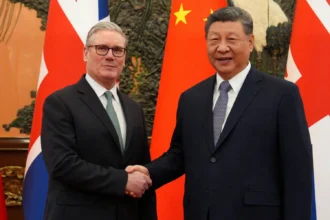The Economic Community of West African States (ECOWAS) faces a critical juncture as Mali, Burkina Faso, and Niger impose a new import levy, signaling the end of free trade within the region. This 0.5% tariff on imports aims to fund the activities of the newly formed Alliance of Sahel States (AES) but comes with significant regional repercussions.
The immediate implementation of the levy marks a stark departure from decades of seamless trade across West Africa. Exceptions for humanitarian aid have been made, but the move is expected to impact regional economies severely.
Essential imports, including petroleum, construction materials, and food, are at risk of becoming more expensive, potentially exacerbating inflation and supply chain disruptions.
This development underscores a growing divide between the Sahel states and southern ECOWAS members like Nigeria and Ghana, particularly after ECOWAS imposed sanctions on Mali, Burkina Faso, and Niger for recent military coups.
The decision to levy imports comes as the Sahel states strengthen their autonomy following their withdrawal from ECOWAS in January 2024. The AES initiative includes the introduction of biometric passports and enhanced ties with Russia to bolster military coordination and economic self-sufficiency.
Additionally, these nations have expelled Western military forces, highlighting their shift toward independence from traditional West African alliances. Analysts caution that these moves could deepen economic divides and complicate diplomatic resolutions.
For some of the world’s poorest nations, the economic toll of strained relations with ECOWAS could be severe. Rising costs of construction materials and food, alongside heightened logistical expenses, are expected to burden both consumers and businesses. Long-term, the imposition of tariffs risks undermining regional trade stability and integration.
While the levy might provide a short-term financial boost to the Sahel junta governments, it threatens to destabilize trade flows and raise consumer prices across the region. Analysts emphasize the importance of diplomatic negotiations to prevent further economic fragmentation in West Africa.
More: US revokes all visas for those from South Sudan









